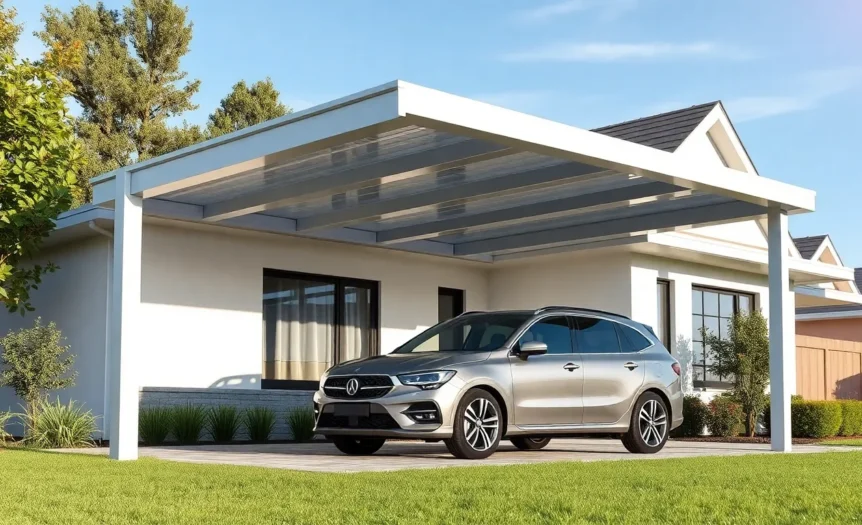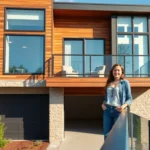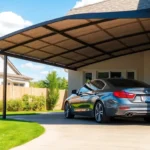When it comes to car protection, a garage may sound like the gold standard, but let’s face it—who really wants to deal with that? Enter the carport: the stylish, budget-friendly alternative that keeps your vehicle safe from Mother Nature’s tantrums. With a dash of creativity and a sprinkle of design magic, a carport can transform an ordinary driveway into a chic shelter that even your neighbors will envy.
Imagine a space that not only shields your car from rain and sun but also adds a touch of personality to your home. From sleek modern designs to charming rustic vibes, the possibilities are endless. Choosing the right carport design isn’t just about function; it’s about making a statement. So buckle up and get ready to explore how a well-designed carport can elevate your curb appeal while keeping your ride cozy and protected.
Overview of Carport Design
Carport design encompasses functionality and aesthetics, catering to various homeowner needs. Styles include modern, classic, and rustic, allowing for seamless integration with existing architecture. Materials used vary widely, with options like metal, wood, or vinyl contributing to each structure’s unique look and durability.
Modern designs often emphasize clean lines and open spaces, creating a minimalist appeal. In contrast, rustic options incorporate natural wood elements, providing a warm, inviting feel. Homeowners seeking a contemporary appearance might choose metal structures, which offer durability alongside sleek aesthetic benefits.
Consideration of local weather plays a crucial role in carport design. Regions experiencing heavy snowfall benefit from pitched roofs, facilitating snow runoff and preventing structural damage. Areas with intense sun exposure may require designs featuring overhangs or canopies, offering additional shade for parked vehicles.
Additionally, customization options abound. Decorative supports and unique roofing materials can create a personal touch, ensuring the carport stands out. Landscaping around the carport can further enhance visual appeal, blending the structure into its surroundings.
Accessibility remains an important aspect of design. Sufficient space allows for easy entrance and exit, accommodating larger vehicles effortlessly. Moreover, incorporating features like storage areas for tools or outdoor equipment can enhance practicality.
Overall, well-considered carport designs provide not only protection for vehicles but also add value to properties while reflecting individual style preferences.
Types of Carport Designs
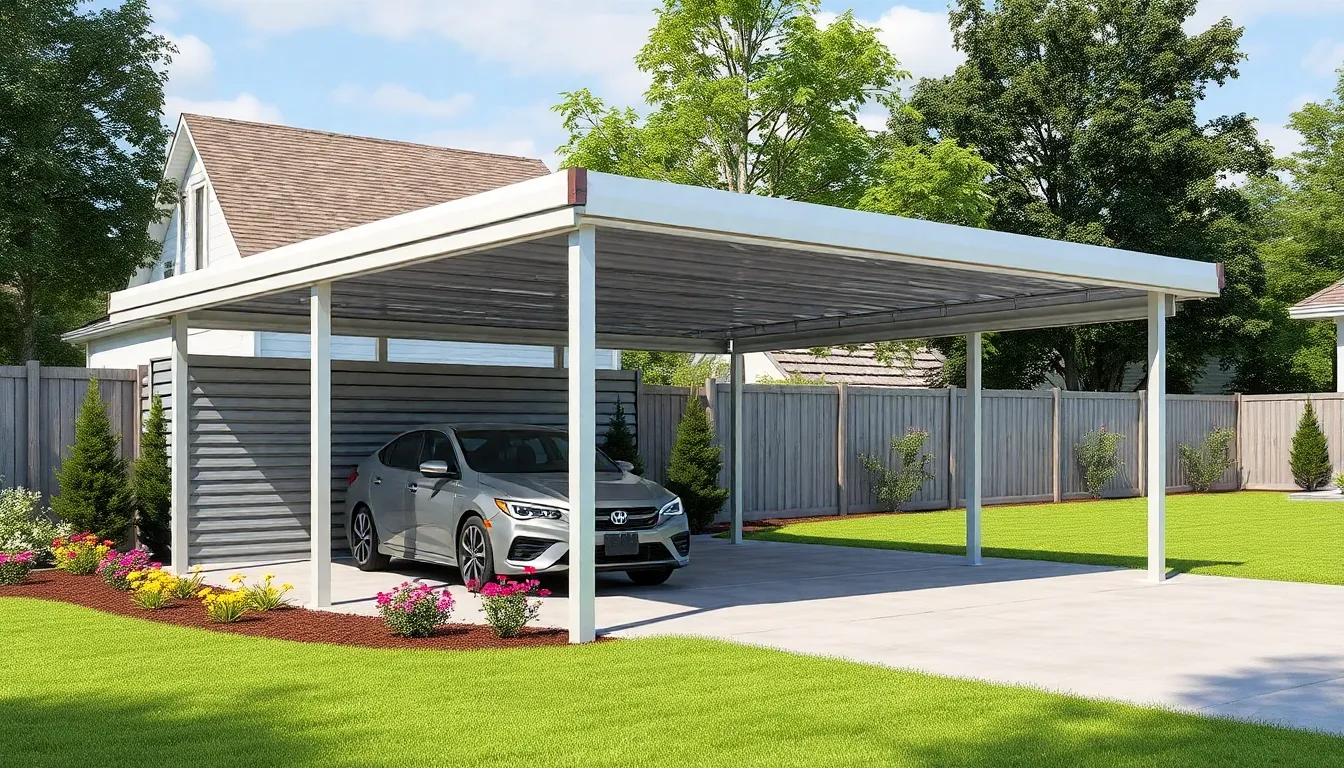
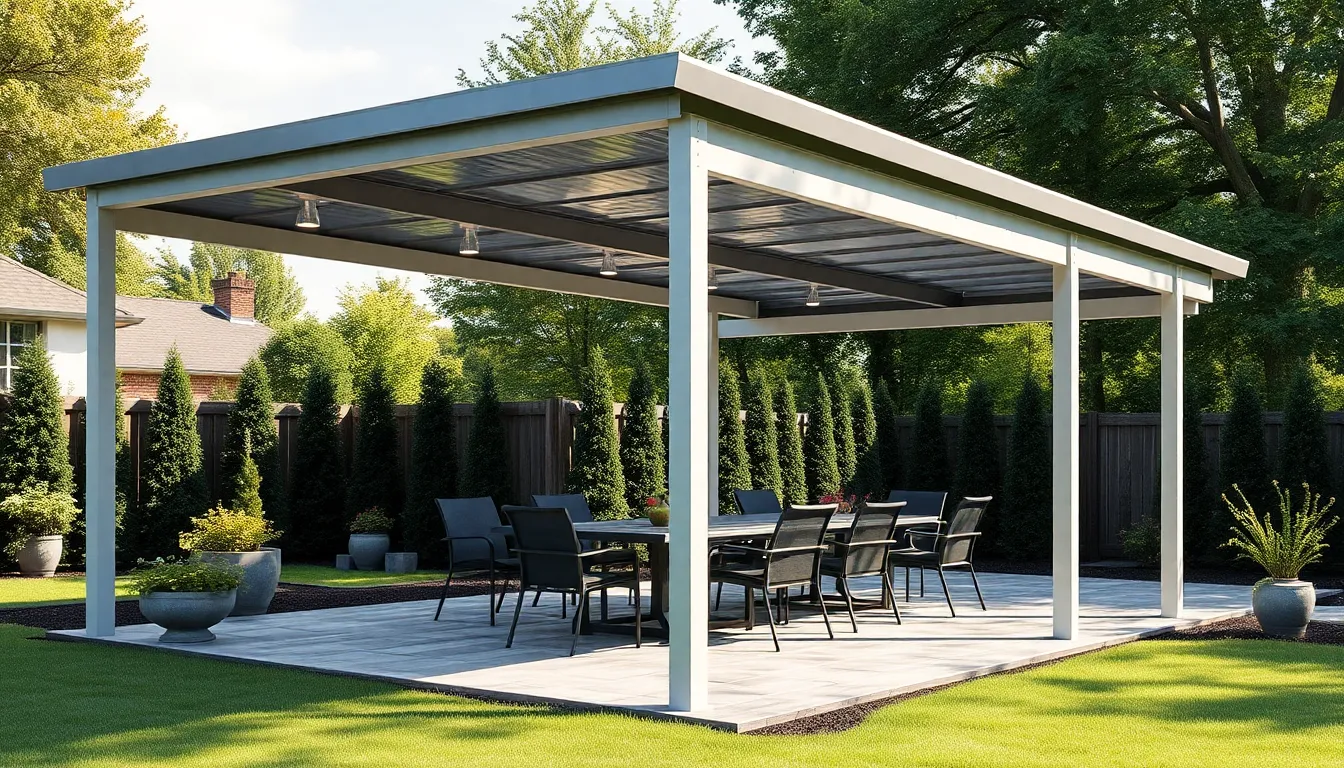
Carports come in various designs to suit different needs and preferences. Each type offers unique benefits in terms of functionality and aesthetics.
Attached Carports
Attached carports integrate seamlessly with existing structures. Homeowners often choose this option for its convenience, as it provides direct access to the house. This design can enhance the overall architectural style of the home. Additionally, it’s possible to customize roofing and siding materials to match the existing building. Local building codes may influence the design, making it essential to ensure compliance.
Freestanding Carports
Freestanding carports offer flexibility in placement on a property. These structures stand alone, allowing for placement anywhere on the lot, regardless of the home’s location. Materials like metal or wood are common, providing various aesthetic choices. Installing this type of carport may require a solid foundation to ensure stability. Homeowners appreciate the versatility, as freestanding options can double as a gathering space for outdoor activities.
Custom Carport Designs
Custom carport designs cater to individual preferences and specific property features. This option allows homeowners to select materials, colors, and styles that align with their vision. Unique shapes and sizes can complement any landscape layout, ensuring a perfect fit. Collaborating with a designer or contractor often leads to innovative solutions to maximize functionality. Customized features like built-in storage or decorative elements further enhance the carport’s appeal.
Materials for Carport Construction
Choosing the right materials for carport construction affects durability, aesthetics, and maintenance. Different materials suit various design preferences and climate conditions.
Wood
Wood carports provide a warm, natural aesthetic that complements many home styles. Popular options include pressure-treated lumber and cedar, both known for their resistance to decay. Natural wood construction offers various finishes and stains, allowing homeowners to customize appearance. Proper sealing protects wood from moisture, extending its lifespan in areas with high humidity. Additionally, wooden carports may require more maintenance than metal alternatives, necessitating periodic treatment to maintain structural integrity.
Metal
Metal carports are renowned for their strength and durability. Aluminum and steel stand out as common materials, offering resistance against severe weather. Steel provides superior strength for heavy snowfall, while aluminum is lightweight, making installation easier. Metal options often come with protective coatings to resist corrosion, ensuring long-lasting performance. A range of colors and finishes enable homeowners to achieve their desired look, blending seamlessly with existing structures. Minimal maintenance requirements make metal carports an attractive choice for individuals seeking practicality.
Fabric
Fabric carports present a flexible and lightweight option for protective coverage. Typically constructed using durable polyethylene or canvas, these structures resist UV rays and light rain. Many fabric carports feature collapsible frames, allowing for easy setup and takedown, ideal for seasonal use. Various colors and designs enhance visual appeal, offering customization that matches personal style. However, they may not provide as much protection from severe weather as metal or wood options. Regular maintenance is crucial to ensure the fabric remains intact and functional over time.
Carport Design
Designing a carport involves multiple crucial factors that influence functionality and appearance. Homeowners must focus on specific elements to ensure their carport effectively meets their needs.
Size and Dimensions
Selecting the right size is essential for accommodating vehicles and additional features. Carports should ideally match the dimensions of the vehicles parked underneath, such as SUVs and trucks. Allowing ample space for doors to open fully enhances usability. Practical dimensions include heights exceeding 7 feet and widths ranging from 12 to 24 feet. Homeowners often benefit from considering future vehicle purchases, ensuring the carport remains functional in the long term.
Style and Aesthetics
A variety of styles can enhance the visual appeal of a home. Contemporary designs often feature sleek lines and minimalist features while rustic options incorporate organic materials like wood to create charm. Color choices and roofing styles also play significant roles in visual cohesion with existing structures. Enhancing the architectural harmony continues to improve curb appeal. Homeowners frequently select carports that echo the overall theme of their residences for a seamless look.
Local Regulations and Permits
Adhering to local regulations is vital before construction begins. Homeowners must check zoning laws that dictate allowable structures and their placements. Building permits might be necessary depending on the size and type of carport. Understanding these rules helps avoid costly adjustments during construction. Checking with local planning departments ensures compliance and avoids future legal issues.
